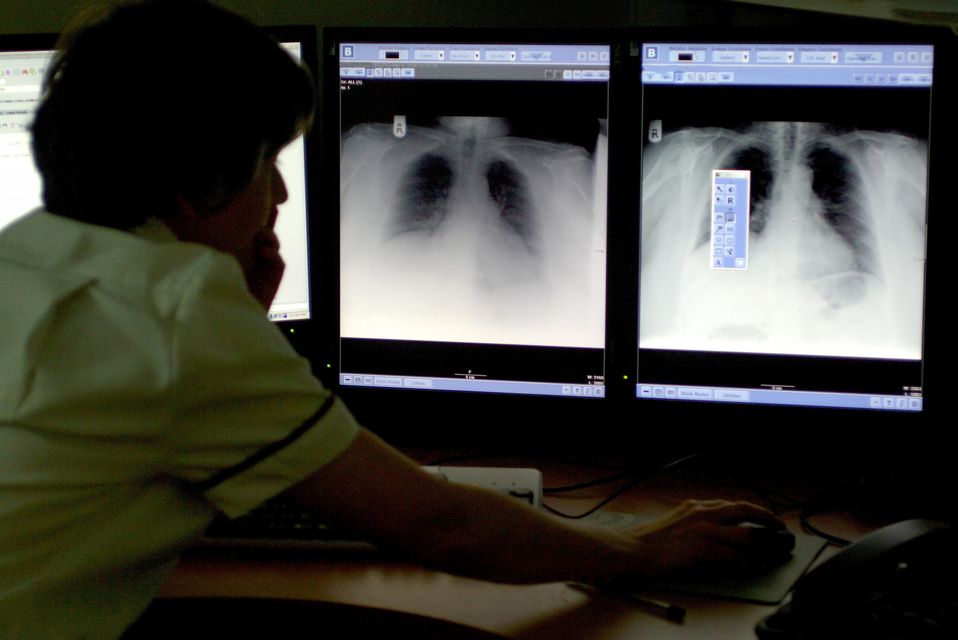The NHS must make greater use of artificial intelligence (AI) to meet the ever-increasing demand and waiting times, the Royal College of Radiologists (RCR) has warned.
College president Dr Katharine Halliday will call for the UK to “urgently embrace” the rollout of the technology in a speech at the RCR and NHS England Global AI Conference on Monday, with a 40% shortfall in radiologists possible by 2028.
There is already a shortfall of 30% in the sector, with 1,962 fewer consultant radiologists and 185 fewer clinical oncologists than is needed, the RCR said.
This is the “main factor” behind the “persistent failure” to meet cancer waiting times targets and the delays to reporting scan results, it said.
Figures given by the RCR last month said while the NHS has a target that every scan should be reported within a month, in the first half of 2024 alone more than 420,000 scans took more than a month to report.
Dr Halliday said: “Each winter, the pressures facing the NHS are worse than the last. Chronic staff shortages in radiology mean patients face delayed diagnoses, while outsourcing costs spiral.
“With demand only set to rise, we will not cope unless we harness the power of AI and new technology.
“We are at a tipping point: AI could revolutionise healthcare—boosting productivity, speeding up diagnoses, and freeing up doctors’ time to focus on patients. But if we get this wrong, it could put patients at risk, waste doctors’ time and drain public funds.”
Dr Halliday added the rollout of AI should be “handled with expert oversight” and that a “national conversation” was needed to ensure its safety, effectiveness and trust from the public.
AI could help radiologists to interpret chest X-rays in the future (Rui Vieira/PA)
Data from the RCR’s 2023 workforce census found more than half (54%) of all radiology departments were already using AI tools, with the proportion expected to have grown since.
The Global AI conference will see more than 700 healthcare professionals gather in Westminster to hear speeches from leading industry figures and academics on “shaping the future of AI in healthcare”, the RCR said.
This will include the potential of AI to rapidly interpret chest X-rays, removing 10% of the scans from radiologists’ workflow.
It will also include its abilities in supporting the diagnosis of strokes and in medical education by using systems such as Chat GPT for radiology training.
Dr Halliday added the RCR was “committed to harnessing the potential of AI while mitigating the risks”, and that the college was “actively collaborating with the NHS and global partners to ensure its responsible development and deployment”.
Health Secretary Wes Streeting said: “Trailblazing AI will be a catalyst for radically transforming our health service and ensuring patients receive world-class care.
“We have already established a brand new working group to make sure new technologies reach the public faster – like AI for better NHS treatments and diagnosis as well as drones to deliver emergency supplies.
“Our AI Opportunities Action Plan will unlock the enormous potential of artificial intelligence across the UK, helping us to cut waiting times for patients and free up staff, as we deliver our Plan for Change to fix the NHS.”
